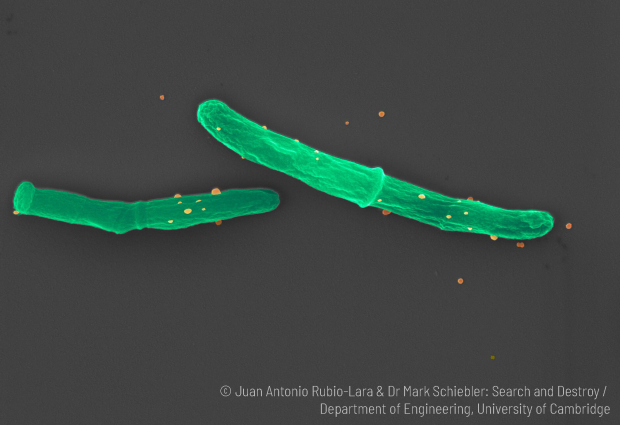
Tuberculosis
Tuberculosis is one of the deadliest infectious diseases. Every day, around 28 000 people contract it and over 4 100 people die from it, according to the WHO.
Last updated on 12 March 2024
In brief
Tuberculosis is one of the deadliest infectious diseases. Every day, around 28 000 people contract it and over 4 100 people die from it, according to the WHO. Progress is necessary to improve its diagnosis and monitoring, and to develop new therapeutic approaches and more effective vaccination.
Diagnostic difficulty, resistance to anti-tuberculosis drugs, treatment of immunocompromised individuals… Much remains to be done to better understand and effectively manage this disease. Across all disciplines, from basic research to the human and social sciences, progress is necessary to understand the persistence of Mycobacterium tuberculosis in the body, develop new therapeutic approaches and more effective vaccination, and improve surveillance by taking into account potential animal reservoirs using a One Health approach, for example.
Research priorities
Research priorities as defined by our agency are:
- The diagnosis of tuberculosis, including non-sputum approaches.
- The treatment of tuberculosis, including reduction of its duration, treatment of ‘persisters’ and treatment of latent tuberculosis.
- Research into vaccines, including their rational design, the different modes of administration, tuberculosis immunology with the aim of developing immunotherapy or host-directed therapies.
- The social sciences (socio-economic research into living with tuberculosis, especially in low- and middle-income countries).
Publications
- Maitre T, et al. Intensified tuberculosis treatment to reduce the mortality of HIV-infected and uninfected patients with tuberculosis meningitis (INTENSE-TBM): study protocol for a phase III randomized controlled trial. Trials. 2022
- Dupont M, et al. Dysregulation of the Ifn-I Signaling Pathway by Mycobacterium Tuberculosis Leads to Exacerbation of Hiv-1 Infection of Macrophages. J Leukoc Biol. 2022.
- De Castro N, et al. Standard dose raltegravir or efavirenz-based antiretroviral treatment for patients co-infected with HIV and tuberculosis (ANRS 12 300 Reflate TB 2): an open-label, non-inferiority, randomised, phase 3 trial. Lancet Infect Dis. 2021.
- Benet S, et al. Dissemination of Mycobacterium Tuberculosis Is Associated to a Siglec1 Null Variant That Limits Antigen Exchange Via Trafficking Extracellular Vesicles. J Extracell Vesicles. 2021
- Marin Franco J. L., et al. Host-Derived Lipids from Tuberculous Pleurisy Impair Macrophage Microbicidal-Associated Metabolic Activity. Cell Rep. 2020.
- Souriant S, et al. Tuberculosis Exacerbates Hiv-1 Infection through Il-10/Stat3-Dependent Tunneling Nanotube Formation in Macrophages. Cell Rep. 2019.
